Introduction
Do Ferrets Make Good Pets: When it comes to choosing a furry companion to share your life with, the options are vast and varied. While dogs and cats often steal the spotlight in the world of pet ownership, there exists a unique and charming choice that has been gaining popularity in recent years – the ferret. These curious and playful creatures are often described as a bridge between the characteristics of cats and dogs, possessing their own distinct personality traits that make them both endearing and intriguing as potential pets. In this exploration of whether ferrets make good pets, we will delve into their fascinating history, their suitability for various lifestyles, and the responsibilities that come with their care. Whether you’re a seasoned pet owner or considering a first-time addition to your household, the world of ferrets eat offers a delightful and unconventional avenue to explore in the realm of pet companionship.
Intriguingly, ferrets have been domesticated for thousands of years, initially employed for their hunting prowess in controlling pests like rodents. Over time, their roles have evolved, and today, they are cherished for their companionship and playful antics as much as their hunting abilities. This rich history as working animals has instilled in them a blend of inquisitiveness and adaptability that can make them appealing to a wide range of pet owners. As we navigate the question of whether ferrets make good pets, we’ll examine their unique qualities, including their social nature and agility, which can make them excellent partners for those seeking interactive and entertaining pets.
However, we’ll also address the challenges and responsibilities associated with ferret ownership, such as their specific dietary needs, housing requirements, and the time and attention they demand. Ultimately, the decision to welcome a ferret into your home should be a well-informed one, taking into consideration your lifestyle, expectations, and dedication to providing a loving and suitable environment for these captivating creatures. So, join us on this journey as we explore the world of ferrets and discover whether they may just be the perfect addition to your family. Furthermore, ferrets are highly social animals, and they often thrive in the company of other ferrets or humans. Their affectionate behavior and propensity for bonding with their owners can create strong and rewarding relationships.

Are ferrets high maintenance?
Ferrets are considered to be high-maintenance pets. They require daily exercise, regular grooming and veterinary care, as well as a specialised diet that is higher in protein than other small animals. Ferrets also need plenty of space to explore and play, so they may not be suitable for those with limited living areas.
Ferrets are highly social animals. They thrive on companionship, whether it’s with their fellow ferrets or their human owners. If you plan to get a single ferret, be prepared to dedicate a significant amount of time to play and interact with them daily. Alternatively, consider adopting a pair of ferrets to satisfy their social needs.
Ferrets require spacious and secure housing. Ferret-proofing your home is essential, as they are notorious escape artists and can easily get into trouble if not supervised. Ferrets are best housed in multi-level cages with plenty of room for exploration and playtime outside the cage.
Ferrets have specific dietary needs. They are obligate carnivores, which means they require a diet high in animal protein. Providing them with a proper diet, which may include specialized ferret food or high-quality cat food, is crucial for their health. Fresh water should always be available.
Ferrets have a distinctive musky odor that some people find objectionable. Regular grooming, including nail trimming and occasional baths (if necessary), can help mitigate this odor. Additionally, cleaning their living environment is essential to prevent odors and maintain their overall health.
Do ferret bites hurt?
It’s worth noting that the ferret’s skin is thicker and tougher than human skin, so when ferrets nip at each other in play, they don’t inflict any real pain. But when they nip at a human, it can hurt.
Ferrets are naturally curious and playful animals, and they often use their mouths to explore and play. This behavior is not intended to cause harm and is usually gentle, resulting in more of a nip than a painful bite. It is a way for ferrets to interact with their environment and with their human companions.
Like many animals, ferrets can become territorial. If a ferret feels threatened or if someone or something enters their perceived territory, they may react defensively with a more forceful bite. These bites can be more painful and may break the skin.
Ferrets may bite out of fear or pain. If a ferret is frightened, in discomfort, or ill, they may bite as a natural instinct to protect themselves or signal distress. It’s crucial to handle sick ferrets gently and provide them with proper medical care.
Early socialization and training play a significant role in a ferret’s behavior. Well-socialized ferrets are less likely to bite aggressively. If a ferret has not been properly trained or socialized, they may be more prone to biting.
Do pet ferrets smell bad?
Ferrets have a natural, normal smell but that doesn’t mean they should stink. Ferrets are popular pets, but many people note that they have a distinct odor to them. This musky smell is something that most ferret owners get used to and eventually don’t even notice, but sometimes the stink is worse than it should be.
Ferrets have scent glands located near their anus and on the skin’s surface. These glands produce a natural musky odor, which is part of their communication and social behavior. This scent is more pronounced in intact (unspayed or unneutered) ferrets, especially during the mating season.
One effective way to reduce the intensity of the musky odor in ferrets is by spaying or neutering them. This procedure not only curtails hormonal changes but also often leads to a decrease in the scent production. Most responsible ferret owners have their pets spayed or neutered for this reason.
Proper hygiene and regular cleaning of your ferret’s living environment can significantly reduce any unwanted odors. Clean their litter boxes daily, wash their bedding regularly, and keep their cages or play areas clean and well-maintained.
A ferret’s diet can influence its body odor. Feeding them a high-quality, well-balanced diet designed for ferrets can help maintain their overall health and reduce odors associated with poor digestion.
While it’s generally not recommended to bathe ferrets too frequently (as over-bathing can strip their skin of natural oils), an occasional bath with a ferret-specific shampoo can help keep them clean and reduce odor.
Are ferrets child friendly?
Ferret owners should be aware that although ferrets can make good pets, they can sometimes carry germs that can make people sick. Ferrets are also not recommended for homes with children under 5 years of age because of the increased risk of injury from bites.
Size and Fragility: Ferrets are small animals, and young children may not fully understand their fragility. Rough handling or accidental squeezing can cause injury to ferrets, so close supervision and education on gentle interaction are crucial.
Temperament: Ferrets are generally known for their playful and social nature. They can enjoy interaction with children, provided it’s done gently and in a controlled manner. However, like any animal, individual ferrets may vary in temperament, so it’s important to introduce them to children cautiously.
Playful Nipping: Ferrets have a natural tendency to nip and play-bite, which is typically harmless when interacting with other ferrets but can be problematic when children are involved. It’s vital to teach children not to encourage this behavior and to react calmly if nipping occurs.
Allergies: Some children may have allergies to pet dander, and ferrets are not hypoallergenic. Before bringing a ferret into a home with children, consider potential allergy issues.
Age-Appropriate Pets: Young children, especially those under the age of six or seven, may not be developmentally ready to handle the responsibility of caring for a pet, including feeding, cleaning, and monitoring their health. In such cases, parental involvement is essential.
Do ferrets cuddle with humans?
Many ferrets like to snuggle with their humans. One thing you can try is getting a hoodie with a front pocket. Your furry little pal may like to curl up in there as you’re relaxing. You can also lie down on the floor with a blanket.
Affectionate Nature: Ferrets are naturally social animals that form strong bonds with their human caregivers. They thrive on interaction and companionship, which often includes cuddling.
Varied Preferences: While some ferrets are cuddle enthusiasts and enjoy being held, hugged, and snuggled for extended periods, others may be more independent and prefer shorter interactions or simply being close by.
Training and Socialization: How well a ferret responds to cuddling can be influenced by early socialization and training. Ferrets that have positive experiences with handling from a young age tend to be more comfortable with cuddling.
Body Language: It’s crucial to pay attention to your ferret’s body language to gauge their comfort level. If they appear relaxed, enjoy being close to you, and don’t show signs of distress (such as trying to wriggle away or hissing), they likely enjoy cuddling.
Timing and Mood: Like humans, ferrets have their own moods. Sometimes they may be in the mood for cuddles, while at other times, they may prefer to play or explore. Respect their cues and boundaries.
Can ferrets make you sick?
Ferrets can carry bacteria and parasites such as Campylobacter, Salmonella, Giardia and Cryptosporidia in their intestinal tract and spread them to people cleaning their cages and litter boxes. Ferrets can also be carriers of ringworm fungus, fleas and scabies mites that can infect their handlers.
Zoonotic diseases are illnesses that can be transmitted between animals and humans. While ferrets are not considered high-risk animals for zoonotic diseases compared to some other pets, there are still potential health concerns to be aware of.
Like many animals, ferrets can carry Salmonella bacteria, which can cause gastrointestinal illness in humans if ingested through contact with the ferret’s feces or contaminated environment. Regular handwashing and maintaining proper hygiene can minimize the risk.
Some people may develop allergies to ferret dander, urine, or saliva, leading to symptoms such as sneezing, runny nose, or skin rashes. These allergies can be managed with proper cleaning and air filtration.
While ferrets do not typically carry rabies, bites from any animal can lead to infections. Proper care of any bite wounds, whether from a ferret or any other animal, is essential.
Ferrets can contract Toxoplasma gondii, a parasite that can be harmful to pregnant women and individuals with weakened immune systems. Maintaining a clean environment and avoiding contact with the ferret’s feces can help reduce the risk of exposure.
Can I sleep with my ferret?
There isn’t a right answer to this question because it depends on the owner. You can let your ferret sleep with you on the bed. It is extremely adorable to snuggle your little fuzzy the entire night, but I wouldn’t recommend that. I am a little paranoid I will hurt my ferrets when I roll in the bed and squeeze them.
Safety should be your top priority. Ferrets are small animals, and there is a risk of accidentally rolling over or squishing them during the night. This risk is especially high in larger beds or if you’re a heavy sleeper. Ensure that your ferret has a safe and comfortable place to sleep in your room, such as a ferret-specific bed or enclosure.
Some people may develop allergies to ferret dander or fur over time. If you have asthma, allergies, or any respiratory conditions, sleeping in close proximity to your ferret may exacerbate these issues. Keep your bedroom well-ventilated and consider investing in an air purifier.
Ferrets are naturally nocturnal animals, which means they are most active during the night. If you share your bed with a ferret, be prepared for potential disruptions to your sleep pattern due to their nighttime activities, including play and exploration.
If you choose to sleep with your ferret, it’s essential to establish boundaries and reinforce good behavior. Train your ferret to understand where they can and cannot go on the bed and discourage nipping or playful biting during bedtime.
Ferrets are known for their musky scent, which may become more noticeable in a confined space like a bed. Regular bathing and cleaning of your ferret, as well as washing bedding frequently, can help manage any potential odor issues.
Is owning a ferret like owning a cat?
Ferrets are members of the weasel family that have been domesticated for over 2000 years. They are highly intelligent and social pets and, even though they seem just like a small, easy to care for a pocket pet, they are a big responsibility and often require just as much care as a cat or dog, if not more!
Ferrets are smaller, elongated mammals with a long tail and a sleek, flexible body. They are typically around 13 to 16 inches in length and weigh 1 to 4 pounds. Cats come in various sizes, but they are generally larger and more robust than ferrets. Domestic cats can vary greatly in size, with typical weights ranging from 5 to 20 pounds.
Ferrets are obligate carnivores, which means they require a diet primarily consisting of animal protein. Specialized ferret food or high-quality cat food is essential to meet their nutritional needs. Cats are also obligate carnivores, and their diet should consist primarily of meat. High-quality commercial cat food is readily available.
Ferrets can be litter trained, but they may require some patience and consistency. They tend to use litter boxes for both urination and defecation. Cats are generally known for their natural instinct to use a litter box. They are often easier to litter train than ferrets.
Ferrets are social animals that thrive on human interaction and companionship. They may become lonely and bored if left alone for extended periods. Cats are more independent by nature and are often content spending time alone. They do enjoy social interaction but can entertain themselves when necessary.
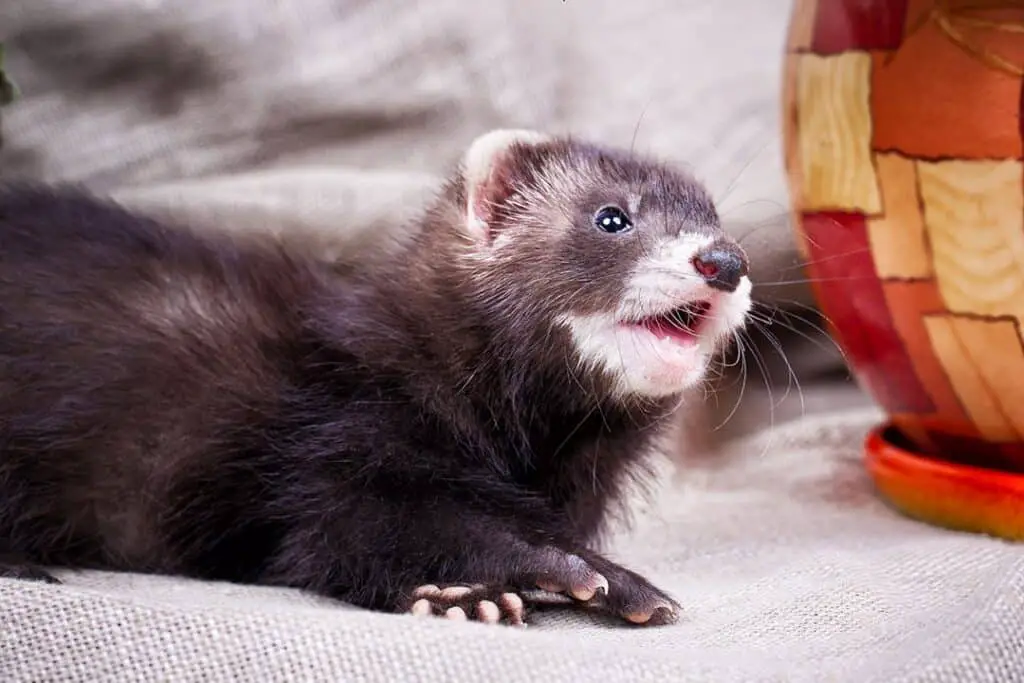
Conclusion
The question of whether ferrets make good pets is a nuanced one, with the answer hinging on various factors, including your lifestyle, expectations, and willingness to invest time and effort into their care. Ferrets pets possess a unique blend of qualities that can make them endearing and captivating companions for the right individuals or families. Their inquisitiveness, playfulness, and social nature can create delightful bonds with their human owners, providing endless entertainment and affection. Their adaptability to indoor living and relatively small size make them a viable option for many households, including those with limited space. However, it’s crucial to approach ferret ownership with a clear understanding of the responsibilities involved. Ferrets require a safe and well-ferret-proofed environment, regular grooming, and specialized diets to thrive.
Their mischievous tendencies and curiosity can lead to unexpected challenges in maintaining their well-being. If you’re ready to provide the necessary time, attention, and care required to ensure the happiness and health of these playful creatures, you may find that ferrets make a wonderful addition to your family, offering love, laughter, and a touch of unconventional charm to your life. However, like any pet, thorough research and thoughtful consideration are essential before making the commitment to bring a ferret into your home. In the pursuit of the answer to whether ferrets make good pets, it’s important to recognize that ferret ownership can be both rewarding and challenging. The pros of having a ferret as a companion include their affectionate nature, adaptability to various living environments, and the joy they bring with their playful antics. These small, curious creatures can form strong bonds with their owners and provide a unique and delightful pet experience.
However, the decision to bring a ferret into your life should not be taken lightly. Ferrets require careful attention to their needs, from their housing and diet to their hygiene and social interactions. They demand a significant time commitment, and prospective owners must be prepared for the responsibilities that come with providing a fulfilling and enriching life for their ferrets. Ultimately, the suitability of ferrets as pets depends on your willingness to invest in their care and adapt your lifestyle to accommodate their unique requirements. If you are prepared to meet these challenges and embrace the joys of ferret ownership, you may find that these inquisitive and affectionate creatures make not only good but great pets, offering companionship, laughter, and a touch of whimsy to your daily life.

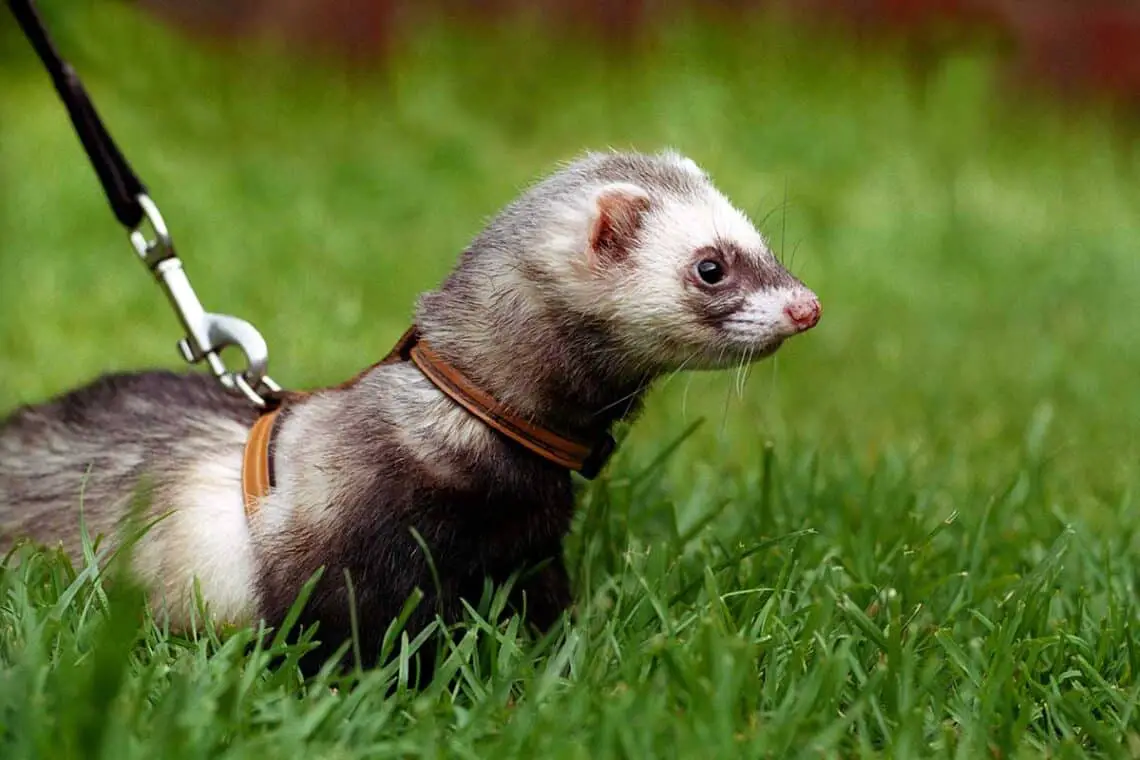
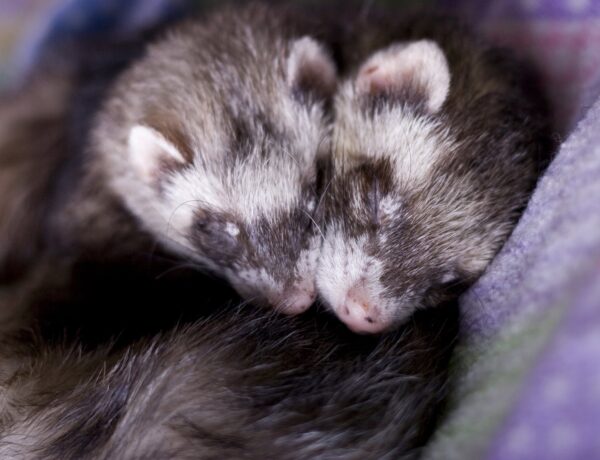
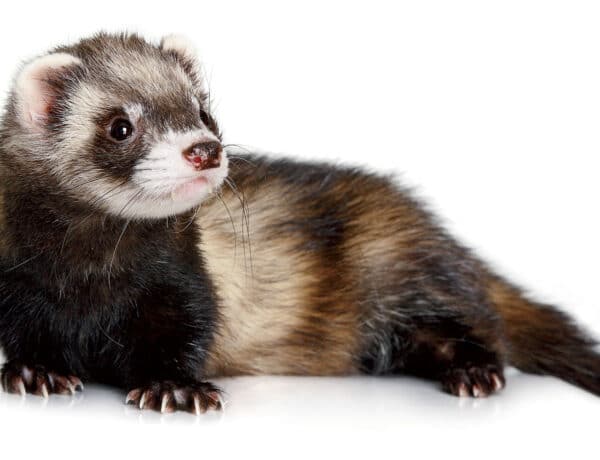
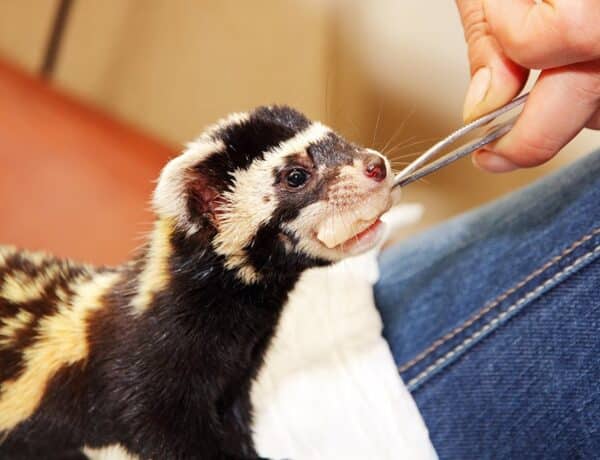
No Comments